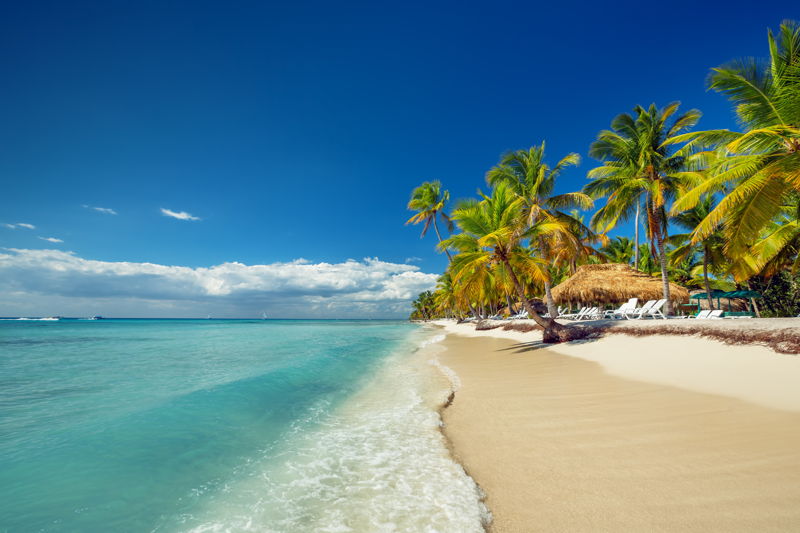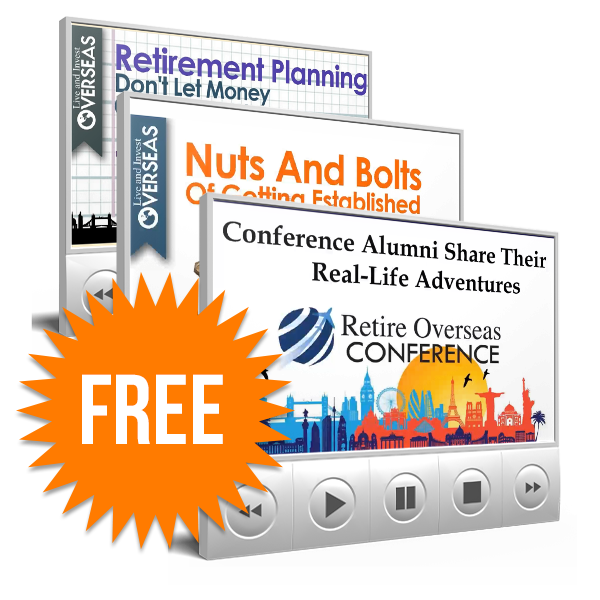Heather’s Practical Approach To Finding The Right Home Overseas
Retirement is looming.
With it comes the challenge of deciding where to live.
We plan to take the next three years to figure out an answer to that question, living in various locations for three to six months each.
But how do we decide where we might like to hang our hats in retirement? How do we make a short list of destinations to try on for size for this next phase of life?
First, we read Live and Invest Overseas and other expat resources.
In addition, we have begun a series of what we call reconnaissance trips, short excursions to locations that are of interest. These are not vacations; they are opportunities to learn what it’d be like to live there.
These trips take some planning and require some work, but it is well worthwhile.
We’ve made two exploratory trips to Panama, and one each to the Dominican Republic and Belize. Here are the tips we’d offer as you think about making a trip or trips like these of your own.
Even if you have settled on a retirement spot, it’s wise to evaluate it according to these eight criteria before committing:
#1: Housing
No matter where you live, housing—whether you decide to buy or to rent—will usually be your single largest expense. Take your time making this important decision.
Meet with as many real estate agents as possible. This is the only way to get a feel for the housing market, prices, and the local community.
Do not feel like you have to buy on your first trip. In fact, any agent trying to pressure you into making a purchase during your first visit to a country is probably not the agent for you.
In addition to working with local real estate agents, you should invest in your own on-the-ground reconnaissance. Visit the neighborhoods you’re interested in on your own. Spend time driving and, more important, walking around. The best way to get to know a place is on your own two feet.
#2: Transportation
My husband is a car guy, so this issue is particularly hard for him.
For any place where you’re thinking about moving, ask yourself: Do you need a car to live there… or could you get by walking and using local public transportation, taxis, Uber, etc.?
If you decide to have a car, will you bring one with you or buy a new one locally? If you intend to import a car, will you have to pay import taxes? How does car insurance work in your country of choice? What is parking like? What is traffic like? These are all questions you can answer on a reconnaissance trip by talking with locals and actually experiencing the transportation options.
While on your trip, travel around town or the country on a bus. Use the taxis or whatever means of transportation is typical. If you visit Ambergris Caye, Belize, for example, rent a golf cart for a day to see how the locals get around, avoiding the dogs, cyclists, pedestrians, taxis, construction trucks, and other golf carts that crowd the streets.
The key is to give it a try. For example, we drove once in Panama City during morning rush hour, and I swore we would never do that again! And, while we were intrigued with the idea of living in Bocas del Toro, Panama, we learned on our visit that getting around by boat and water taxi isn’t our thing.
#3: Food/Dining
Central Americans love their beans and rice, and so do I. If you don’t love rice and beans, you may want to consider an area that has more food options to your liking. Americans are used to access to a tremendous diversity of foods. Use a reconnaissance trip to determine if you can live with different foods and different ways of acquiring and preparing them.
Some countries and cities have American-style supermarkets while others have what are essentially overgrown convenience stores. Processed foods such as canned goods, cereal, and even peanut butter are relatively expensive in much of the world.
As a vegetarian, I’m conscious that not every restaurant is going to meet my needs. I try to be flexible, sometimes ordering meatless side dishes, for example, so as not to come across as the proverbial “ugly American” who expects everyone to conform to my desires. If you have dietary restrictions, a reconnaissance trip can help you determine if living in the area would be feasible or too complicated.
#4: Activities
What do you like to do? This is common sense and may seem obvious, but, if you love hiking, Ambergris Caye is probably not a good permanent living choice. If you love white-water rafting and bird-watching, Boquete, Panama, may be perfect for you.
Knowing what you enjoy to do for fun and recreation should help you determine where you want to retire. Start with a place that has the basics of what you love, then be open to exploring and trying new things. Find out what those might be on your exploratory trip.
#5: Language
At the Retire Overseas Conference in Las Vegas last year, all of the speakers urged attendees to learn the language of wherever they choose to go. We second that advice.
Speaking the language allows you to become more engaged with the community of your retirement home. It shows respect for the people and culture and indicates you are trying to become a part of that and not looking to impose your views and lifestyle on those around you.
On a reconnaissance trip, you can find out what sort of language classes are available or what language programs (Rosetta Stone, Babel, etc.) local expats have used. Don’t be shy about asking!
#6: Health Care
Health care isn’t just about costs. It’s about availability. We toured Las Terrenas in the Dominican Republic, a town of 60,000, and were told if we needed any medical care that we should plan to have it taken care of in the capital, Santo Domingo, a 2.5-hour drive away. That isn’t bad while we are young and healthy, but, if things change, it could be a problem.
Expats already in residence are the best source of information on local healthcare options and quality.
#7: Immigration
Every country offers different requirements and different opportunities for becoming a resident, depending on age, retirement status, marital status, budget, income, etc.
You can find a significant amount of information online… maybe too much. When it comes to residency options and processes, what you read online can be outdated, conflicting, confusing, or just plain wrong.
Make time during your reconnaissance trip to talk to expats about their residency visa experiences and, very important if you want to be able to live in the place indefinitely, to meet with an immigration attorney to talk through your personal circumstances.
#8: Life Philosophy
Take your values and beliefs into consideration and see how they will fit into the place you’re exploring and considering.
For example, are recycling and sustainable living important to you? You can find communities in many countries that have programs (like Carmelita Gardens near San Ignacio, Belize).
However, by and large, if you are considering the Caribbean or Latin America, recycling is often just not a thing. In fact, litter on the side of the roads, on beaches, and lodged under jungle plants, is a thing.
If you are a person of faith, you will want to find a community where you can practice your beliefs. Investing options for that on an exploratory trip will make your move that much easier.
How To Find The Information You Need
Use all available resources:
You can start your research with Google, but the search engine will get you only so far and will offer so many conflicting opinions and ideas that they may not be useful at all.
If you’re reading this, you are a subscriber to Live and Invest Overseas. That’s really a great start. I also recommend attending a LIOS conference.
In Las Terrenas and Ambergris Caye, we met up with folks who had presented at the Las Vegas conference. Touring the towns with Marvin and Julien of Atlantique Sud and Rachel from ECI Development gave us insights into the communities we would never have seen or known otherwise.
Don’t feel like you have to visit blindly and do everything on your own.
Check out local blogs and online news sources:
Many overseas communities, especially those with large expat groups, have online blogs or newspapers. Become a regular reader of publications from the place or places that interest you.
Read before your reconnaissance trip to have an idea what to expect and read after to help you process what you’ve seen and experienced.
Get outside the resorts and tourist places:
If you choose to move ahead with your plan to retire overseas, you will (to state the obvious) no longer be a tourist.
That’s why it’s important on a reconnaissance trip to travel outside the typical tourist spots.
OK, the Hard Rock Hotel in Panama City is cool and worth a visit but don’t base your retirement choice on it!
Check out neighborhood bars, find out which beaches the locals frequent, eat at restaurants that are family-owned and -run, etc. Do everything you can think of to penetrate the tourist exterior of a place.
Talk to locals:
This is probably the single most useful activity on a reconnaissance trip. We especially enjoy visiting with those who were “born and raised” in the area. They have really helped us to better understand the local perspective.
You also want to talk to expats, who are great sources of information on everything from the reliability of utilities to bringing a car into the country.
All that said, the best advice we can offer as you head out to explore your retire-overseas choices would be this:
Be flexible and enjoy the journey!
Great advice from Heather…
As she mentions above, she and her husband were in the room with us at last year’s Retire Overseas Conference where they made valuable connections with experts in their countries of interest…
You can do this, too… arm yourself with insider knowledge on our top 21 havens around the world… and meet the people who can help you through your move…
This year’s event happens in Houston, Texas, Sept. 7–10. Right now, there’s still time to get a seat. But, be warned, that time is running out on our Early Bird Discount…
Kat Kalashian







